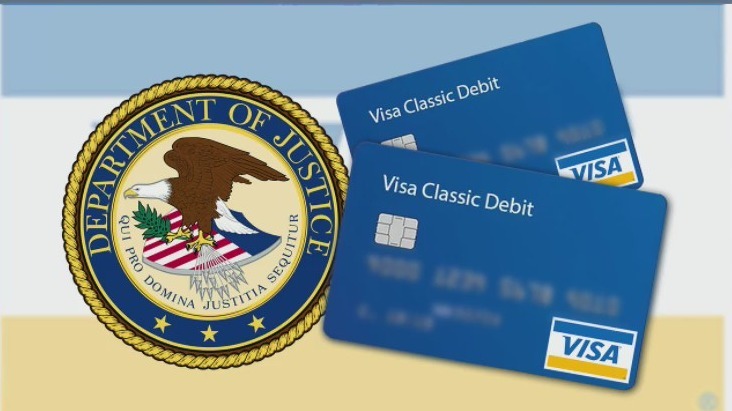WASHINGTON D.C. — The United States Department of Justice filed an antitrust lawsuit against Visa Tuesday, alleging the company maintains an illegal monopoly over debit cards. This comes after a bipartisan bill was introduced in Congress last year that aims to address Visa and Mastercard’s near duopoly over the credit card market, which senate officials said would save consumers billions each year.
United States Senate Majority Whip and Illinois Senator Dick Durbin, along with fellow U.S. Senator Roger Marshall (R-KS), released the following statement after the DOJ filed their lawsuit against Visa:
“According to DOJ’s lawsuit, Visa made exclusive agreements to hinder the expansion of competing networks and blocked efforts by technology companies to enter the market. At a time when hard-working Americans and small business owners are struggling with higher costs of everyday essentials, Visa should not be gaming the system to pad their own pockets.
“Visa and its duopoly partner Mastercard similarly dominate the credit card market. One way to bring competition to the market is to pass our bipartisan, bicameral legislation—the Credit Card Competition Act—which would enhance competition between credit card networks and ultimately lower costs for small businesses and consumers. Our bill ensures that the Visa-Mastercard duopoly ends their price gouging tactics that disproportionately hurt American families and small businesses.” – U.S. Senators Dick Durbin & Roger Marshall, M.D.
According to a press release from the U.S. Senate, it is estimated businesses around the country paid more than $100 billion in swipe fees on Visa and Mastercard-branded cards in 2023. The press release also noted swipe fees can be small businesses’ second highest cost behind the cost of labor.
Last year, Durbin and Marshall were joined by fellow U.S. Senators Peter Welch (D-VT) and J.D. Vance (R-OH) as primary sponsors of the Credit Card Competition Act. The legislation aims to enhance competition and choice in the credit card network market, which is currently dominated largely by Visa and Mastercard.
According to data from the Federal Reserve, Visa and Mastercard account for nearly 576 million cards, or about 83% of general-purpose credit cards.
The Senate’s press release also said Visa and Mastercard’s network structure has enabled the companies to impose fees on U.S. merchants that are among the world’s largest.
The fees include interchange fees that Visa and Mastercard require merchants to pay to issuing banks, as well as network fees the two companies require merchants to pay them directly, both of which influence the price consumers pay for goods and services they buy.
There are currently four U.S. credit card networks: Visa, Mastercard, American Express, and Discover. Visa and Mastercard are known as “four-party” networks where they act as agents for thousands of card-issuing banks and mandate the fees and terms that the banks receive from merchants for each transaction.
According to Durbin, Merchants have almost no leverage to negotiate fee rates and terms in four-party network systems, because they cannot risk losing access to all the consumers served by Visa and Mastercard’s member banks.
That’s where the Credit Card Competition Act comes in.
Building off debit card competition reforms enacted by Congress in 2010, the Credit Card Competition Act would direct the Federal Reserve to ensure that giant credit card-issuing banks offer a choice of at least two networks (one of which must be outside the top two networks, Visa and Mastercard) over which an electronic credit transaction may be processed.
Durbin said that directive would inject real competition into the credit card market — opening the door for new entrants into the credit card network market, such as current debit-only networks, which would encourage innovation and enhanced security that would also create backup options if a network crashes, and exert competitive constraints on Visa and Mastercard’s fee rates.
If passed, senate officials said the bill is estimated to save merchants and consumers approximately $15 billion a year.
For more information on the Credit Card Competition Act, here is a link to a one-page descriptor of the bill: https://bit.ly/4gydO05
In response to the DOJ’s filing, Visa called the lawsuit “meritless” and said they will defend themselves vigorously in the case.
The post DOJ files lawsuit against Visa, alleging illegal monopoly over debit cards appeared first on Patabook News .

